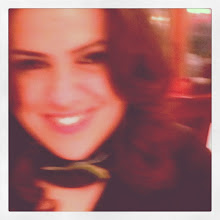Oil Dependence: A double edged sword?
I've always been a little uncomfortable with the whole oil dependency discussion. As
Of course I'm against US 'national interests' translating into death and oppression in the Middle East and North Africa (MENA) and I really don't have a problem with people paying $5/gallon in gas (I've heard this over and over as the final justification for war with Iraq). On the other hand, Libya is an oil producing country--and while, I personally am not benefiting from this, I realize that others are (not just the Q-dude though he & company benefit exponentially more than most).
I was reading Unfettered Swallow's post on Bush's state of the union in February and it got me thinking again.... What would be the best balance for both worlds?
On the one hand, petroleum is tainted--often called black gold or the black curse. And it is a curse of sorts in that it allows for an easy government source of income that really subverts a government's need to establish a healthy relationship with its citizens, far less invasive than a system of broad citizen taxation.
On the other hand, governments are able to use the revenue to subsidize some of the basic needs of people, such as food, housing, or medical treatment. Few things depress me more than seeing so many homeless people on the streets--and, yes, I realize that San Francisco has more than most places, but it depresses me nonetheless that there are SO MANY! I won't even go into health care, except to say I believe that petroleum production revenue does generally translate into a more universal health care system (although I can't say much about access). And it makes me happy to think no one is starving, too.
I know the economic answer would be something about a diverse portfolio or comparative advantage, but if the portfolio benefits a minority and the comparative advantage isn't quite clear, then what?
If oil dependency translates into interference of a political process and freaky politics as we've seen thus far, then that's not desirable.
However, what does oil independence translate into for petroleum producing states like Libya?
Of course I'm against US 'national interests' translating into death and oppression in the Middle East and North Africa (MENA) and I really don't have a problem with people paying $5/gallon in gas (I've heard this over and over as the final justification for war with Iraq). On the other hand, Libya is an oil producing country--and while, I personally am not benefiting from this, I realize that others are (not just the Q-dude though he & company benefit exponentially more than most).
I was reading Unfettered Swallow's post on Bush's state of the union in February and it got me thinking again.... What would be the best balance for both worlds?
On the one hand, petroleum is tainted--often called black gold or the black curse. And it is a curse of sorts in that it allows for an easy government source of income that really subverts a government's need to establish a healthy relationship with its citizens, far less invasive than a system of broad citizen taxation.
On the other hand, governments are able to use the revenue to subsidize some of the basic needs of people, such as food, housing, or medical treatment. Few things depress me more than seeing so many homeless people on the streets--and, yes, I realize that San Francisco has more than most places, but it depresses me nonetheless that there are SO MANY! I won't even go into health care, except to say I believe that petroleum production revenue does generally translate into a more universal health care system (although I can't say much about access). And it makes me happy to think no one is starving, too.
I know the economic answer would be something about a diverse portfolio or comparative advantage, but if the portfolio benefits a minority and the comparative advantage isn't quite clear, then what?
If oil dependency translates into interference of a political process and freaky politics as we've seen thus far, then that's not desirable.
However, what does oil independence translate into for petroleum producing states like Libya?

